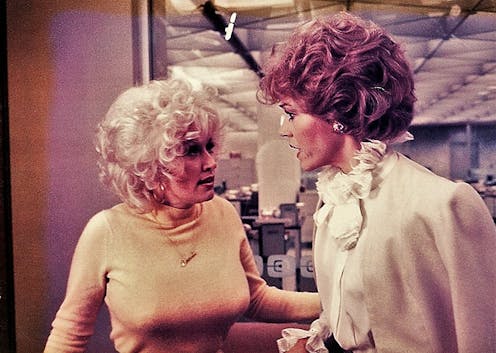As the 9-to-5 work day disappears, our lives are growing more out of sync
- Written by Dan Woodman, TR Ashworth Associate Professor in Sociology, University of Melbourne

You may have noticed the 9-to-5 work day is disappearing. We increasingly live our lives according to our individual schedules, although these are rarely completely within our individual control.
As our working lives become increasingly 24-7, our new research suggests there’s now an additional task to do in our families and friendships. We need to work harder than before to get our everyday schedules to sync up, even if just for a short time, to catch up in person with our best friends or to have a family meal together.
We’re not working 9 to 5
As part of the Life Patterns Project, we have spent the past 15 years tracking about 500 Australians from their final years of high school through to the age of 30. Getting a foot on the career ladder and finding quality work has been tough. But over the years we’ve seen most make the transition from casual and part-time work to full-time work and ongoing contracts.
However, one thing that Dolly Parton and many of us associate with a standard job has never arrived – working “9 to 5”.
Many of our participants have moved into professional jobs and out of the hospitality and retail jobs of their earlier years. Yet, while only a few are still officially working shifts, most still find themselves needing to do at least some work in the evenings and on weekends.
In terms of work schedules, non-standard is the new standard.
Life out of sync
As well as surveying our participants, we talk to about 50 each year to get the story behind the numbers.
The respondents had already told us that working non-standard hours affected their relationships, even for those in their late teens and early 20s. We wanted to know how they are managing their relationships around their complex work schedules, so in our most recent interviews we did something a little different.
We asked our participants to recruit either their partner or a close friend. We then followed both through a week of their lives, checking in with them every day using a mobile phone app. We asked them how their week was structured, who they spent time with and how time together was organised.
Read more: Sharing the parenting duties could be key to marital bliss: study
We found them working hard to create shared quality time with partners and friends in a “24-7” world. This involved lots of messages, calls and sometimes scheduling apps. One of our participants reflected:
We’ve got a WhatsApp group and last week I just asked, ‘Is anyone free on Saturday?’ There’s been a few saying, ‘Oh, I could potentially do that.’ But nothing’s set in stone yet. Often when it actually comes around it doesn’t work out. […] There’s a lot of people who can’t, generally because of work commitments.
Who is getting you in sync?
Our busy lives may mean we have more acquaintances and associates than our parents and grandparents had. But we now have to work harder than ever before to synchronise our free time with our closest friends and family.
Read more: Millennial burnout: building resilience is no answer – we need to overhaul how we work
It doesn’t look like we are sharing this work equally. Our research suggests it tends to be women doing this job for their partners and in mixed-sex friendship groups, even before children come along and make this scheduling even more complex. Voicing a common experience, one of our participants reflected:
I do all the scheduling as you might have picked up on. My husband doesn’t do much of that. So I take care of that, I suppose. And that helps us to run things smoothly.
Even in same-sex friendship groups, some people seemed to take on this organising role more than others. But there is a clear gender inequality at work.
Many others have observed that women usually shoulder the task of managing the rest of life outside of paid work for the whole family, no matter how much paid work they do. In the context of non-standard work patterns becoming more common, for many the job is being made even harder.
Got time for a coffee?
We’ve recently heard about the mental load of dealing with caring and housework unequally carried by women and that the younger generation is increasingly facing burnout.
It seems we are not sharing equally this extra work of synchronising lives in a world out of sync. It might be time for us all to reflect on who is carrying this load in our lives. Maybe you can thank them by organising to buy them a coffee, if you can find a time that works.
Authors: Dan Woodman, TR Ashworth Associate Professor in Sociology, University of Melbourne





